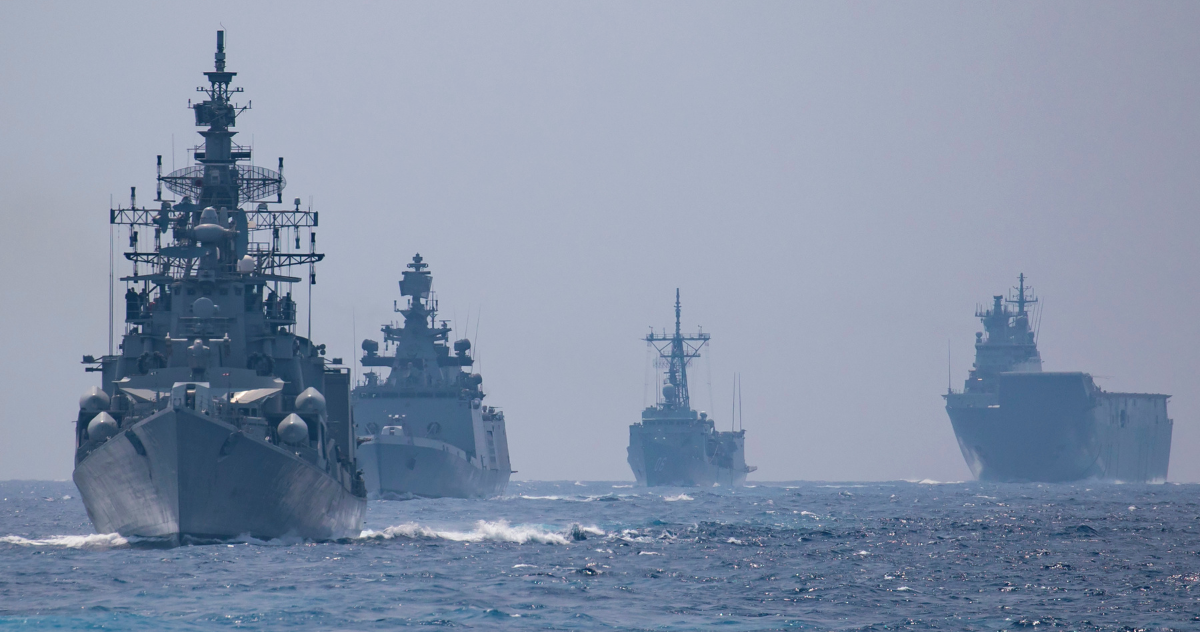UK (Parliament Politics Magazine) – Even though Australia and India’s relationship is becoming closer, as demonstrated by the Second Australia-India 2+2 Ministerial Dialogue, for example, both Canberra and Delhi are beginning to realize that trilateral groups can be an even more effective way to address shared challenges in the Indo-Pacific region.
The first Indo-Pacific meeting, however trilateral, demonstrates how close Australia-India relations have evolved in recent years. Thus, it was encouraging to see that concept investigated in London, an improbable location until recently, rather than in Canberra or Delhi. In addition to giving identical speeches and reports of their respective sessions, Australian and Indian high commissioners Stephen Smith and Vikram Doraiswami welcomed one another like longtime friends.
The regularity of gatherings such as the Australia-India Leadership Dialogue, the Raisina Dialogue, and several other shared points of contact throughout India, Australia, and the Indo-Pacific region contributes to this familiarity.
The UK has spent a significant portion of the last several decades concentrating on Europe and has approached our region, the Indo-Pacific, through the European Union. But in the wake of Brexit, the UK has a much stronger strategic emphasis on the Indo-Pacific, partly because of political shifts in the UK but also because of contestation in our area. The UK’s so-called “Indo-Pacific Tilt” is a modified strategic stance toward the Indo-Pacific, which Australia, India, and other like-minded allies welcome.
Read More: How Did Middle East Economy Boomed in so Fast?
UK in CPTPP
Building on the bilateral Australia-UK Free Trade Agreement, the UK has become the second largest signatory economy after Japan to the Comprehensive and Progressive Agreement for the Trans-Pacific Partnership (CPTPP). The bilateral free trade agreement negotiations between the UK and India are also moving along. Late in November, the Presidents of the United Kingdom and the Republic of Korea declared their desire to form a more comprehensive 2+2 joint Foreign and Defense Minister Level talks and a higher-level strategic relationship.
Sixth-generation fighter aircraft development between the UK and Japan has been agreed upon as part of a larger defense collaboration. The Royal Navy has been using its offshore patrol ships to reestablish a permanent presence in the Indo-Pacific region over the past several years. The significance and evolving function of the Australian High Commission in London was also brought to light during the recent conference.
Naturally, the mission continues to be crucial to comprehending and arranging Australia’s strategy regarding the Middle East and Ukraine crisis, as seen by our assistance in providing Ukrainian soldiers with training at Salisbury Plain. Germany, France, and other European allies are encouraged to adopt similar methods by the UK’s and Australia’s increased focus on the Indo-Pacific region.
The historic AUKUS Defence Partnership between the United States, the United Kingdom, and Australia is primarily a shared technological plan for the Indo-Pacific region’s security and stability. AUKUS feeds into India’s strong interest in the stability of the area and the safety of the Indian Ocean because it is ultimately an Indo-Pacific Security Accord.
Similarly, the UK is well aware of and has much to contribute to the cooperative efforts in tackling climate change, pandemic responses, cyber, AI, and the Indo-Pacific Partnership for Maritime Domain Awareness, even if it is not a member of the Quadrilateral Security Dialogue with Australia, India, Japan, and the US. One example is the UK’s position as a conversation partner in the Indian Ocean Rim Association (IORA), where it presently holds a seat.
This 23-member state intergovernmental organization, which promotes regional cooperation in the Indian Ocean, has Australia and India as members. Small island governments might become more resilient to the negative effects of climate change and the startling rise in illicit, unreported, and unregulated (IUU) fishing by implementing a reinforced IORA with assistance from the UK. Furthermore, all three countries share the same understanding of the Indo-Pacific: it should be a region to which all countries have equal access as a right under international law, enabling them to freely share air and seaspace, settle conflicts amicably, deter maritime crime, protect marine ecosystems, and thrive through the blue economy.
It is in Australia and India’s best interests as leaders of the Indo-Pacific to expand their trusted partnerships beyond their rapidly growing bilateral relationship and find additional allies to address these common security issues. There is evident great potential for collaboration between Australia, India, and the United Kingdom, which the Indo-Pacific region would much appreciate. It makes sense to support the UK’s increased visibility and proactive engagement in the Indo-Pacific, especially given its wealth of maritime experience.

